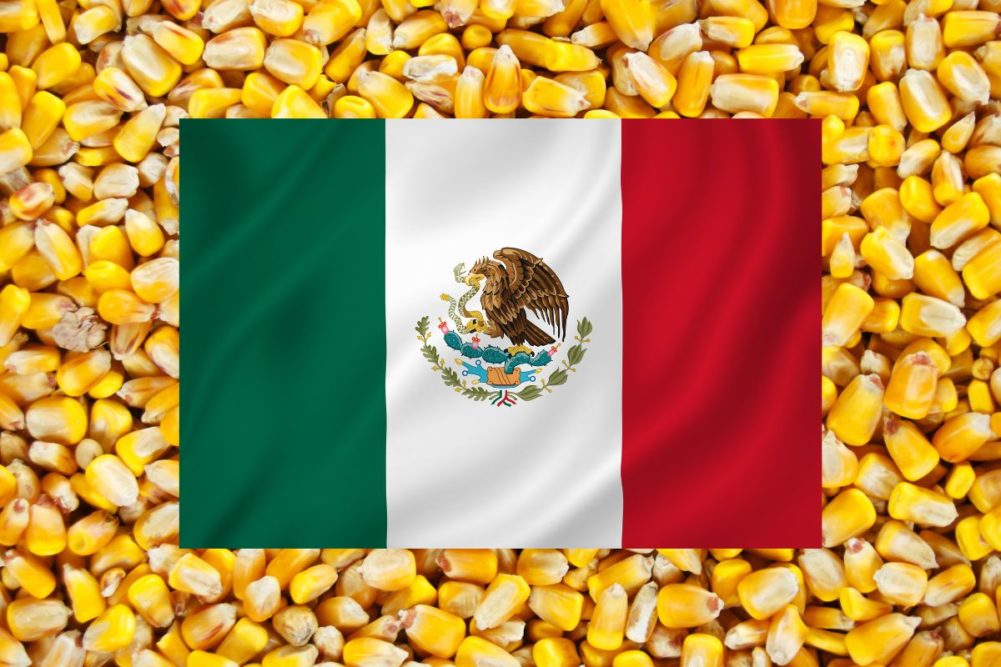KANSAS CITY, MISSOURI, US — While uncertainty remains over the likelihood of Mexico following through on a ban of genetically modified corn, agriculture officials and trade groups are continuing discussions with Mexican leaders to show the negative impacts of such a ban.
In an August meeting with Iowa farmers, US Agriculture Secretary Tom Vilsack downplayed the idea of banning imports, calling it a product of politics and a move to protect the country’s heritage. The country takes pride in its white corn varieties and wants to maintain its heritage corn seeds.
Vilsack said he told Mexican leaders that consumers could face rising food costs without US corn to feed livestock.
“That made an impression,” he said in the meeting. “And we’re in discussions about how we might get to a better place” on accepting biotech traits and continuing US corn sales to Mexico.
The decree issued by President Andrés Manuel López Obrador came into force on Jan. 1, 2021, and calls for a phase-out of glyphosate and GM corn by January 2024. Mexico imports about 17 million tonnes of GM corn per year, and the United States is the top supplier.
In mid-August, a MAIZALL delegation met with government representatives and industry stakeholders in Mexico to discuss the decree. MAIZALL includes members from Abramilho in Brazil, MAIZAR in Argentina and the National Corn Growers Association and US Grains Council (USGC) in the United States. Farmers from these countries produce 50% of the world’s corn and 81% of corn exports.
The group pointed out that it is unlikely enough non-GM corn will be available in international markets by 2024 to meet Mexico’s needs. This will lead to food insecurity and increased prices for many of its staple foods.
“This is one of our biggest efforts thus far to engage with the Mexican government, explain the benefits of biotech, how and why our farmers use it,” said Andrew Brandt, director of trade policy at the USGC. “We also explained how if the decree goes forward, what the consequences are.”
A World Perspectives report from March shows that the ban could increase Mexico’s food insecurity and add $4.4 billion to its corn import costs.
MAIZALL members also emphasized the importance of science-based, transparent and proportionate regulatory approach to policies related to agriculture and food production.
“In our countries, GM crops are evaluated by leading independent scientists as part of a rigorous process to ensure all approvals guarantee environmental and food safety,” said John Linder, a farmer from Ohio, who was part of the MAIZALL mission. “Biotechnology helps farmers increase yield, reduce the use of plant protection products and conserve the quality and biodiversity of the soil and the environment, all key aspects in sustainable food production.”
Based on the ongoing discussions between US and Mexican officials, US commodity groups feel more positive Mexico will continue to import yellow corn from the United States under the decree. More emphasis is being placed on white corn, which was first developed and established in Mexico. White corn is used for tortillas and other staple food products.
“Even though we hear positive things from the Mexican government, the decree still creates a problem in white corn and the general implication that biotech is not safe,” Brandt said. “Our preference is for this to never be implemented on any level, whether its yellow or white corn.”
Most US corn exports to Mexico consist of yellow corn for use in the livestock feed industry, according to the USDA. Yellow corn also is imported for use in the processing sector to make cereals, starches and other processed products. Smaller amounts of US white corn are exported to Mexico for food use, the USDA said.
“Mexico is mostly self-sufficient in the production of white corn but will supplement its own production with imports of US white corn as needed,” USDA said in a report from the Foreign Agricultural Service.






